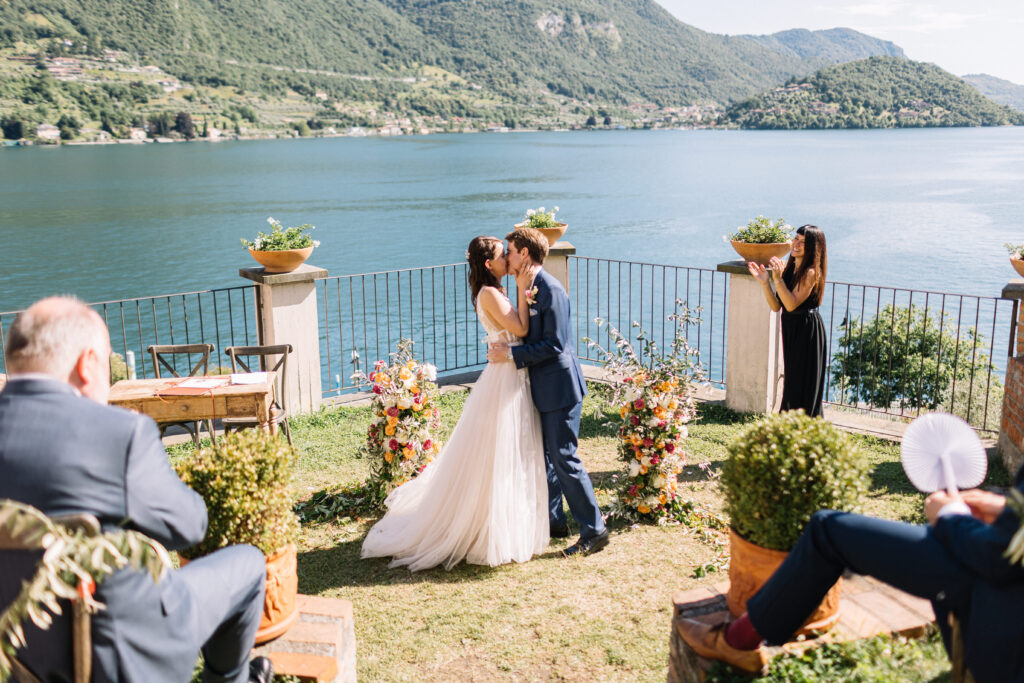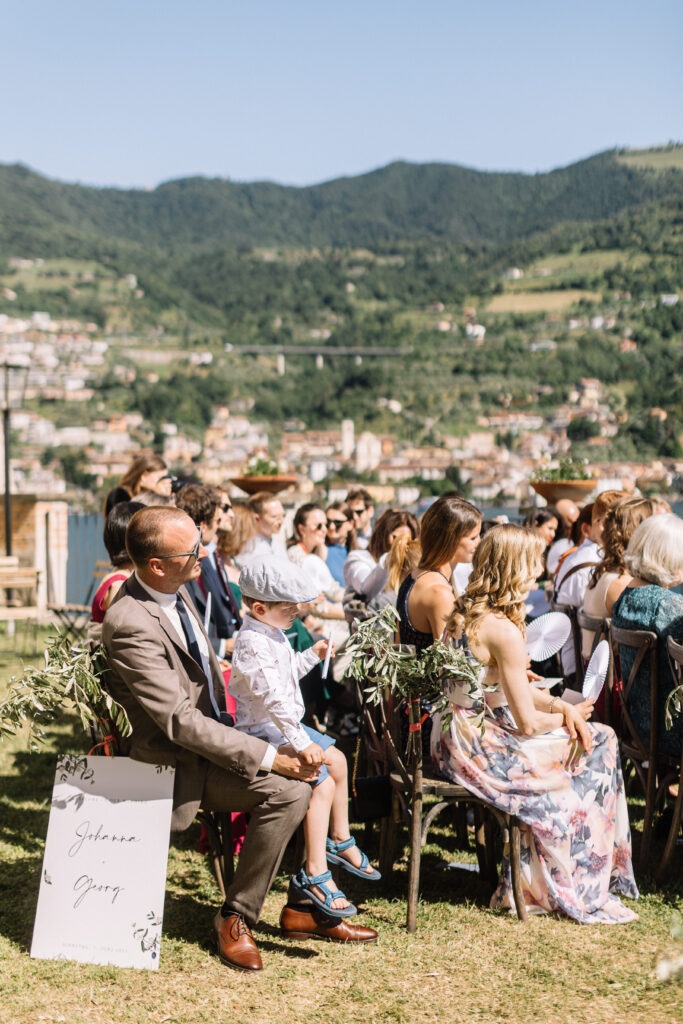Civil vs symbolic wedding ceremony in Italy? Each option offers its own unique charm, allowing couples to tailor their special day to match their personal preferences and desires.
In this article, we’ll explore the differences between civil and symbolic wedding ceremonies in Italy, offering insight into the advantages and considerations of each choice.
Civil Wedding Ceremonies
A civil wedding ceremony in Italy is a legally binding union recognized by the Italian government. Conducted by a public official, typically the Mayor or a local registrar, civil ceremonies are held in designated locations such as town halls, historical palaces, or other government-approved venues. These ceremonies are straightforward, focusing on legalities and official documentation, making them an ideal choice for couples who prioritize the legal aspect of their marriage.
Advantages of Civil Ceremonies:
Legal Recognition: A civil ceremony ensures that your marriage is legally recognized not only in Italy but also in your home country.
Simplicity: Civil ceremonies are often concise and formal, making them an excellent choice for couples who prefer a straightforward and efficient ceremony.
Historic Venues: Many civil ceremony venues in Italy are located in stunning historical buildings, providing an elegant backdrop for the exchange of vows.
Considerations:
Limited Personalization: Civil ceremonies tend to be more standardized and less customizable compared to symbolic ceremonies. Couples seeking a more personalized and emotional experience might find this aspect lacking.
Language Barrier: The official part of the ceremony is always conducted in Italian with the assistance of your Italian wedding planner for interpreting.
Symbolic Wedding Ceremonies
A symbolic wedding ceremony in Italy is a non-legally binding celebration that focuses on the emotional and spiritual aspects of marriage. This type of ceremony offers couples the freedom to craft a personalized and unique experience that reflects their love story, values, and beliefs. Symbolic ceremonies can take place virtually anywhere, from ancient castles to picturesque vineyards, and can be officiated by a professional celebrant, a family member, or even the couple themselves.
Advantages of Symbolic Ceremonies:
Personalization: Symbolic ceremonies allow couples to incorporate their own vows, readings, music, and rituals, creating a deeply meaningful and personalized experience.
Flexibility: Couples can choose from a wide range of stunning venues, from rolling countryside landscapes to charming coastal settings, without being restricted by legal requirements.
Language Options: Since symbolic ceremonies aren’t legally binding, couples have the flexibility to conduct the ceremony in their preferred language, making it more accessible and inclusive for guests from various backgrounds.
Considerations:
Legalities: Symbolic ceremonies don’t hold legal weight on their own. Couples who opt for a symbolic ceremony usually complete the legal formalities in their home country before or after the symbolic celebration.
Guest Awareness: Informing guests that the ceremony is symbolic rather than legally binding is important to avoid any misunderstandings or confusion.
When it comes to choosing between a civil or symbolic wedding ceremony in Italy, couples are presented with two distinct paths, each offering its own set of advantages and considerations. Civil ceremonies provide legal recognition and historic charm, while symbolic ceremonies offer personalization and flexibility.
Ultimately, the decision hinges on the couple’s priorities, values, and preferences, allowing them to craft a wedding day that perfectly aligns with their vision of love and commitment. Whether amidst the timeless beauty of Tuscany or the romance of Venice’s canals, Italy stands ready to host a truly unforgettable celebration of love.
Civil vs symbolic wedding ceremony in Italy? Get in touch with Framille Weddings who being also a wedding officiant herself can offer you different perspectives and options for your wedding ceremony.






Photo Credit Wonderlust, Fabijan Vuksic
